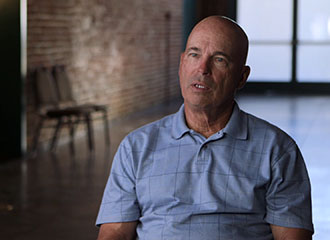Retirement Readiness
6-minute read
Retirement Readiness
6-minute read
Retirement can be a rewarding and fulfilling chapter in life, but it may also have unexpected downsides when it comes to mental health.
Like many retirees, Veterans can feel that their days lack focus and purpose without the routine and responsibility of work. Those who relied on the structure of military service may feel adrift without similar guidelines after they retire. And without a job to focus on, Veterans have an abundance of free time to think about troubling events from the past, including combat experiences.
“Guys now who are retiring … start to think about things,” explained Howard, a U.S. Army Veteran who served in Vietnam. “You had a kid. You worked. You’re retired. Your kids are out of the house. You’re sitting around and you think. You go back to certain times, you know?”
Beyond facing difficult memories, some retired Veterans may feel a strain on their relationships and finances, or find it harder to enjoy things they would usually like to do. Retirement hits each person differently.
- “I had nothing to do, and I started to drink a lot,” says Larry, who served in the Army in Vietnam. Like some Veterans, Larry found that retirement led to boredom and unhealthy behaviors: “I had real trouble sleeping. I’d go from great periods of anger to sadness.”
- Hugh, an Army Veteran who served in Desert Shield, had trouble concentrating and sleeping after retirement. His sleep was interrupted by his speaking loudly in Arabic and trying to choke a pillow. “The problem was, I spent 20 years being evaluated on my performance — for putting mission first and taking care of others, and not necessarily taking care of myself,” he says.
- Valencia’s retirement collided with empty-nest syndrome. After her children left home, the Navy Veteran grew lonely and depressed. “I just didn’t want to be here anymore,” she explains. “All these negative thoughts going through my head constantly and, you know, I can’t take that anymore.”
- Veterans like Tyrone, who was injured multiple times during his Army service in Vietnam, cite the difficulties with chronic pain and worsening physical health that can come with age. “Surely the warrior that Tyrone was in 1971 — I’m certainly not that way now at 67,” he says. “In all honesty, that’s the issue right there: dealing with the change of physical limitations, restrictions that are brought about by injuries in the past catching up with you now as you're aging.”

Larry's challenges surfaced after retirement
While retirement can be tough, a healthy lifestyle can make you feel younger and more vital, helping to improve your overall well-being in your later years. It may also help you to:
- Keep your mind active through social activity, learning new things, or reading.
- Talk with other Veterans, family members, or friends who have been through experiences similar to yours.
- Devote time to causes and people you care about.
- Get regular exercise, maintain a balanced diet, and curb excessive tobacco, drug, and alcohol use.
And where a healthy lifestyle leaves off, VA can support you with counseling and other services to make the most of your retirement. If you are feeling stress, anxiety, depression, or any other emotion that worries you, ask for help from family members, friends, a person you trust, or VA.
Lige, a Navy Veteran of the Korean War, reached out to VA after realizing: “I don’t want to spend the rest of my life like this. I’m not getting along with my family. I’m not getting along with myself. I want to do something about it.”
“The mental health department at the VA is No. 1, top-notch,” Lige says. “There are programs out there for [Veterans]. We’re not forgotten.”
